SheBelieves Because...: Sue Smith - Paving the Way
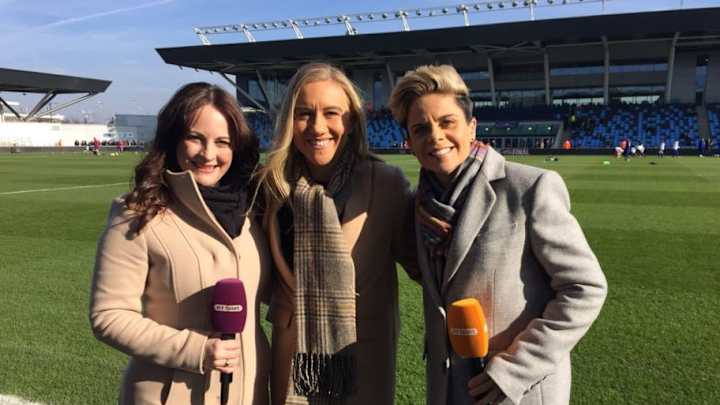
If you speak to my mum she’ll tell you, if most of the other girls around me growing up saw a ball, they would pick it up and throw it. I always used to kick it.
I was always going to play football, and my parents and my family were incredibly supportive. All the lads I played with treated me like...well, one of the lads, really – even if they used to have to kick the ref out of his changing room so that I could get changed in there. You’d get the occasional sly comment from the other team when they saw that there was a girl playing, but that fired me up. I used to think ‘Right, I’ll show you.’
The boys on my team would laugh when anyone from the opposition made comments, and just say ‘yeah, wait til she megs you’. They were enormously supportive, and I’m still close with a lot of them now.
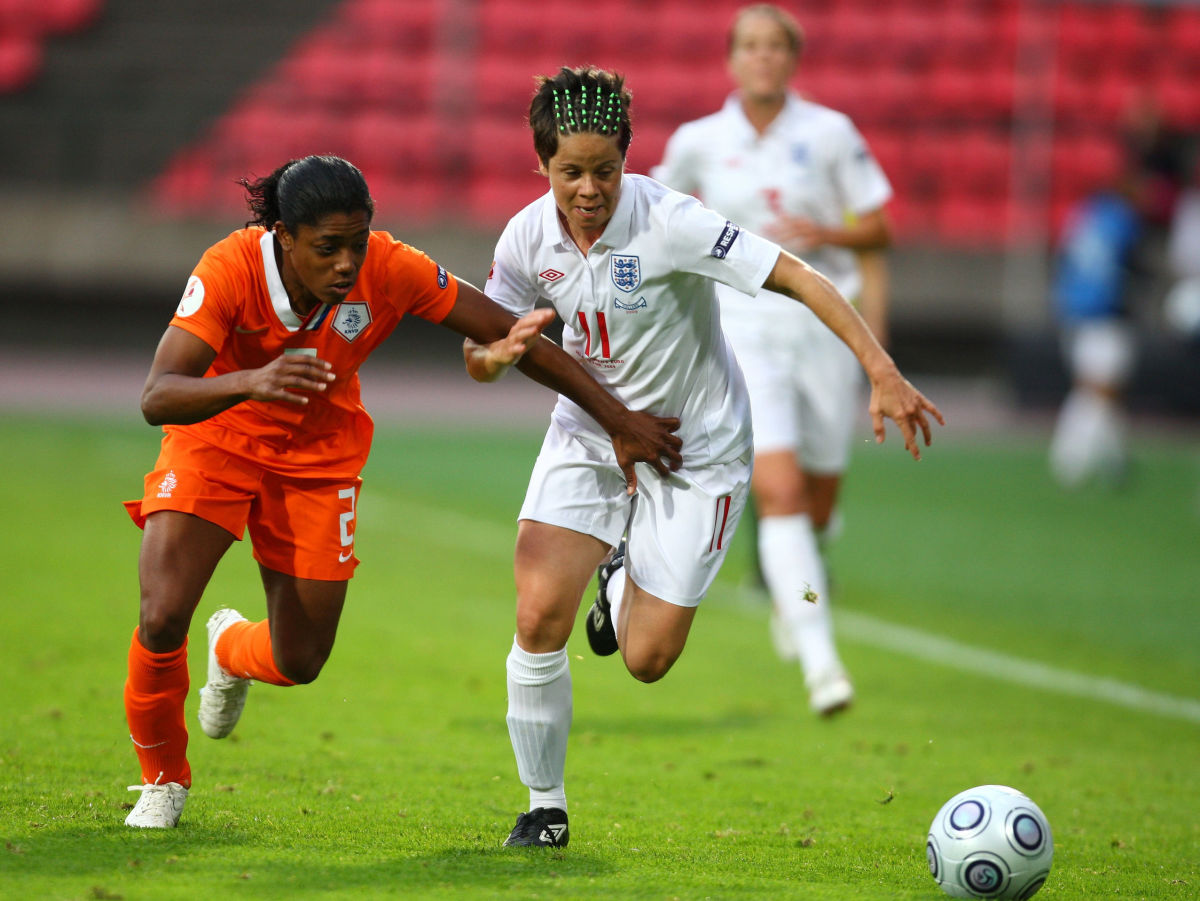
The opportunity just wasn’t there to play for a girls’ team, and I really feel like that put a lot of girls off. I had so many friends who would have played, but just didn’t feel comfortable playing with all lads, and we probably missed out on a huge amount of top footballers in that era. For the likes of Kelly Smith or Rachel Yankey, their story is really similar – we all grew up playing boys’ football.
I didn’t know there was an England team, or even a female league when I was younger.
I probably played five or six years as a full time professional. When I say full time professional, I mean I was able to live – pay my mortgage and pay for my car – and I tried to do as much as I could around playing football to keep me topped up. I used to try and do bits of media, coaching, and I’ve got a Sports Science degree so I would do fitness training for some of the younger age groups. I was working a lot whilst playing full time really.
When the game was semi professional, trying to hold down a full time job but also make it as a footballer was incredibly tough. Going out to train from 6am, then doing a full time job and then training after work meant probably not getting home until 11 or 12 at night. And then the cycle would start again...which isn’t that healthy a lifestyle, but if you wanted to play at the highest level that was what you had to do.
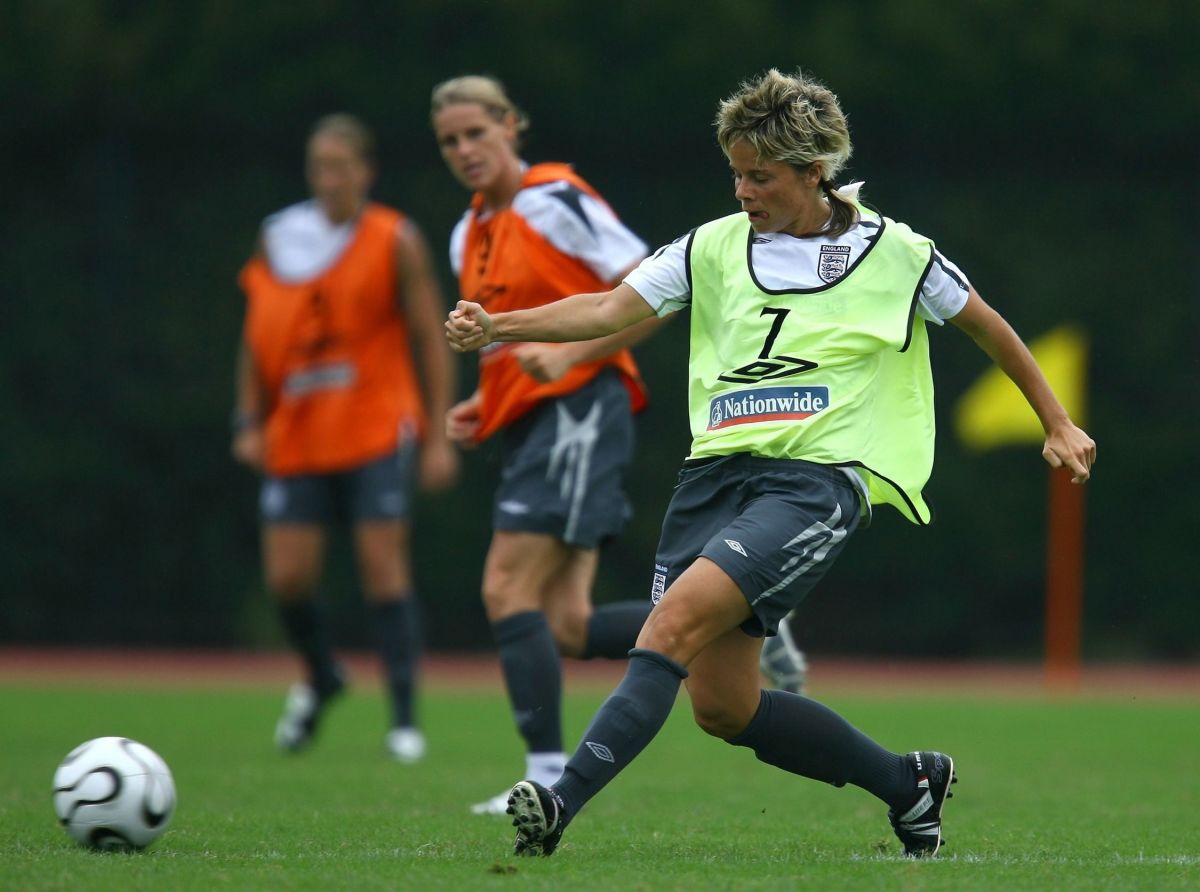
Thing is, because of how hard players who played with me had to work, nobody ever took anything for granted. That helped create a really fantastic atmosphere and community around the women’s game, and I really hope that never gets lost. In 10 years’ time when the standard is even better, and hopefully players are getting a decent amount of money to play football, I’m hopeful that players will still have that empathy for the fans and that desire to go and spend time with young people at the end of the game, signing autographs and taking pictures.
As a player, I didn’t realise the influence and effect I had over young people. I still get people who will come and have a chat and talk about a conversation that we might have had and they say ‘I still remember the advice that you gave me’ and you think ‘wow! That’s so powerful.’ I tell the girls who are playing now: “Whatever you say to the young girls you speak to at the end of the game, ensure the message is purely positive and something that you want them to keep hold of, because they will remember that.”
The girls right now are fantastic at doing that. As I’ve stepped out of the game and have had a chance to meet a few people who I spoke to after matches whilst playing, young women have spoken with me and said “You told me to keep my head down and work hard and I now play for Sunderland.” Small things like that can have such a big impact. It’s such an important thing that you just go and spend a few minutes.
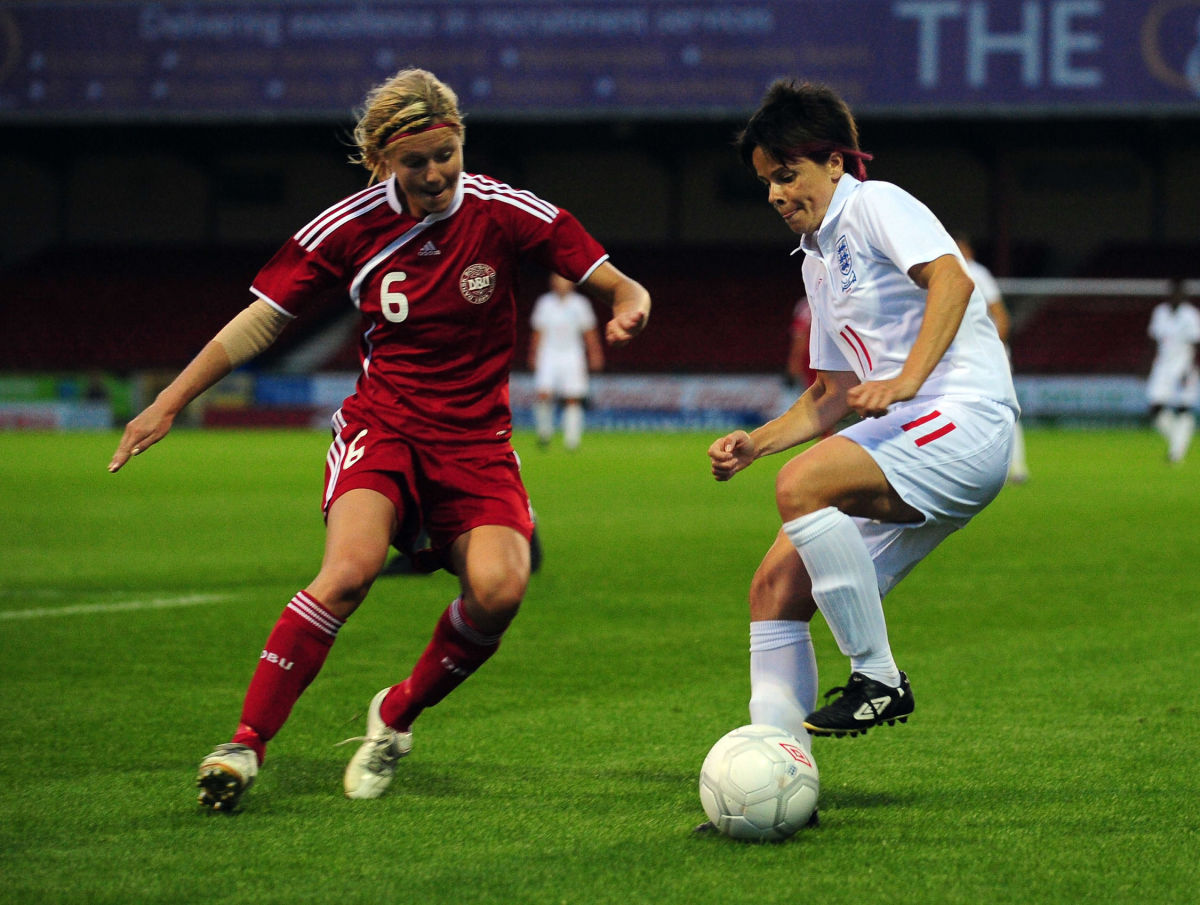
I never realized how important it was until I finished playing. It was just something that we did, so I really try and get that message across to the players now. Rachel Brown and I were talking about this recently and both said to each other, it’s only when you step away from football that you’re able to see how small gestures can mean so much. You realise how much you appreciate the fact that you and the other players around you were keen to share your experiences with youngsters who could one day be playing for England.
When I was growing up, I just assumed if I was good enough I was going to play for England men’s team. It was only when I played for Tranmere that I found out there was an England women’s team at all, because scouts were coming down to watch. That was when I knew I wanted to play for my country.
I played for England for almost 20 years and it flew past. We’d be away for a week every month, then we’d go to a tournament and be away for six weeks or so depending on how far we got. Every time we went away for a training camp or a tournament we just got better and better, and we got so much more invested. I saw the team and the setup evolving all the time with doctors, coaches, nutritionists and sports scientists. We’d never had that before, and we went from getting absolutely battered by the top teams like the US and Germany to suddenly thinking ‘hang on, we can compete with these.’ We had never been tactically and technically as effective as them but we were closing the gap. Every time I put the shirt on I knew I was testing myself against the best players in the world, and there was just no better feeling than that.
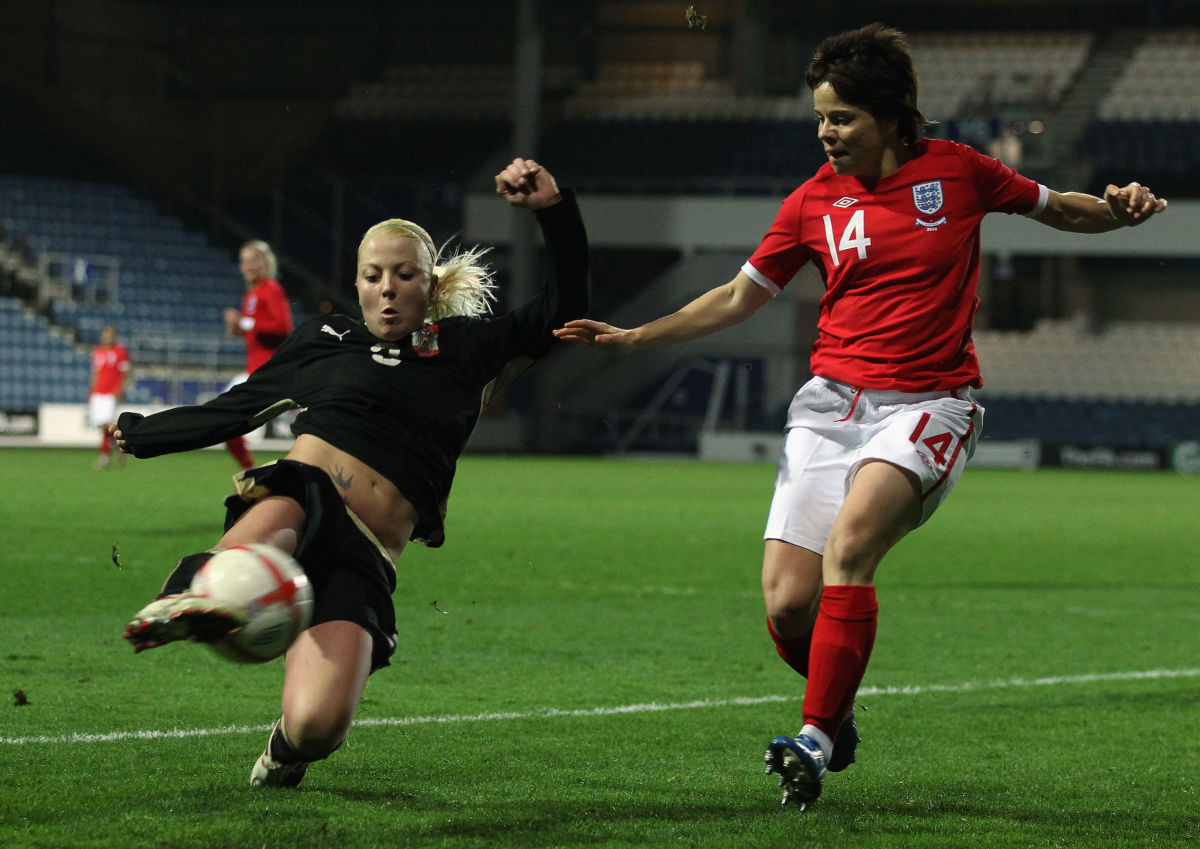
I played 93 times for England and I’m still gutted that a couple of injuries meant I didn’t quite get to 100. You never want to finish your England career through an injury, you want to be able to call time on it.
I get asked if I’m jealous of the state of the women’s game now. Do I wish that I was born 10 years later so that I could have been part of the fully professional league and have an even better chance of winning the World Cup like the girls do this year? Honestly, I’m not jealous at all.
I’m absolutely made up for the girls now, and I’m so happy that we were able to pave the way for the girls today to go and experience playing in a professional league, and a better England side than ever. An England side that could go on and win something. I’m just delighted for everyone playing now and experiencing this, because every year seems to be getting bigger, better and more exciting – and I think that’s down to us starting things off, and to the girls now that are out there doing it.
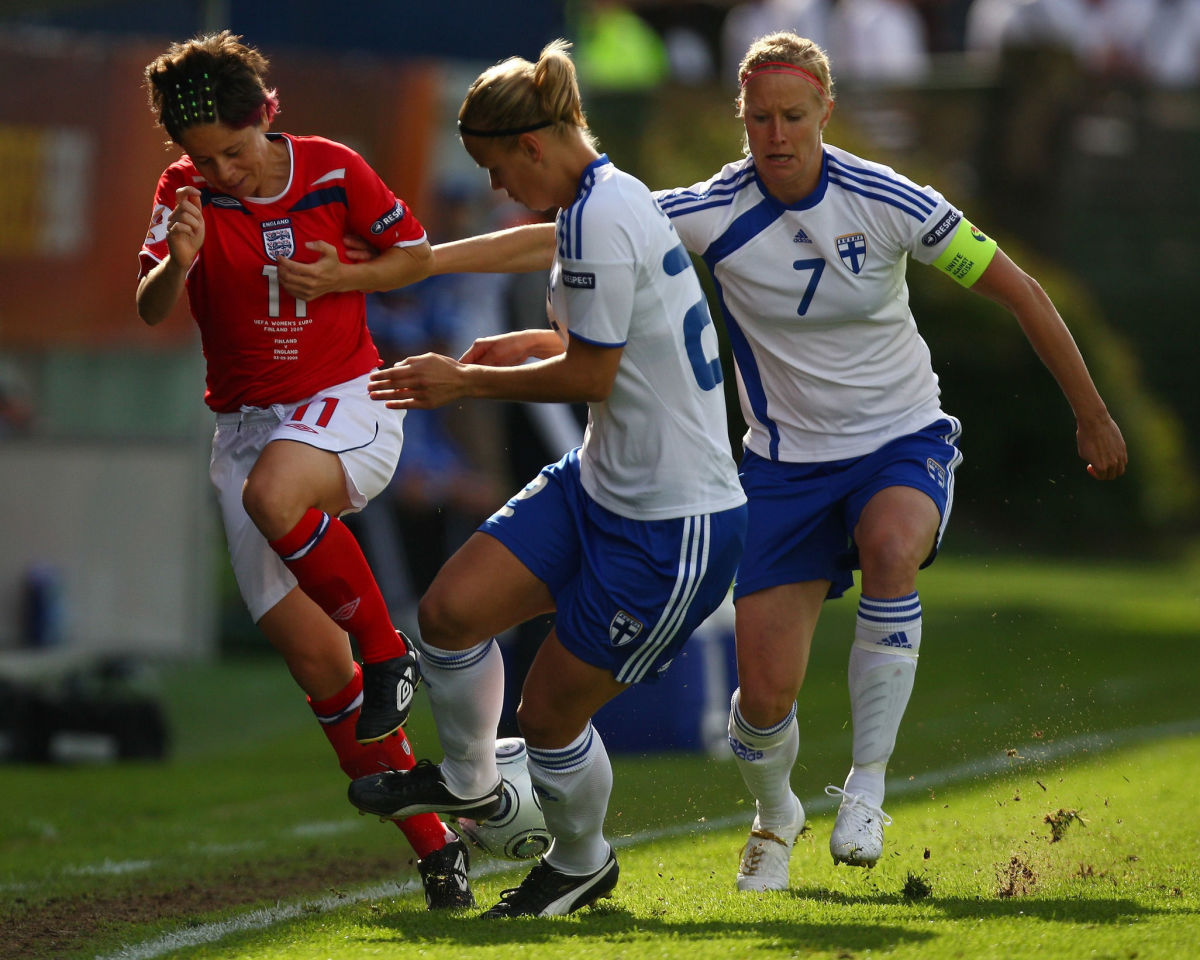
When I was injured, I was asked to come and do a little more media work and analyse the game a bit. Aside from actually playing football, it was one of the only things that I could get a similar buzz from. I always thought in my head it would be something I want to go into, so when it felt like my time was coming up to step away from football, I had progressed with media stuff. I’m super competitive with everything that I do, I want to do everything to the best of my ability. Even now when I finish a show or a broadcast I always ask what could I do better or improve on, I think that must just be drilled into you as a footballer.
I think it’s so important to see female pundits and analysts on TV and within the media. It’s another role that young girls will see that they can get involved in, even if they aren’t going to be a player. Football is football, whether it’s a men’s game or a women’s game. We’re talking about the same game. I also feel it’s really important for men to get involved in women’s football – the more people see both women involved in the men’s game and vice versa, the more it becomes the normal.
If you speak to anybody who knows me, they’ll tell you that I’m a very positive person. I just think it’s so important to be ‘glass half full’. We’re working in and talking about a game that we love, so there’s no reason to be doing it with a mardy face. Football is all about having fun and being happy. Whether you’re playing for England or you’re playing with your mates, you gain so many human skills from playing sport and playing football. I truly believe that it can help you be the best person that you can be.
